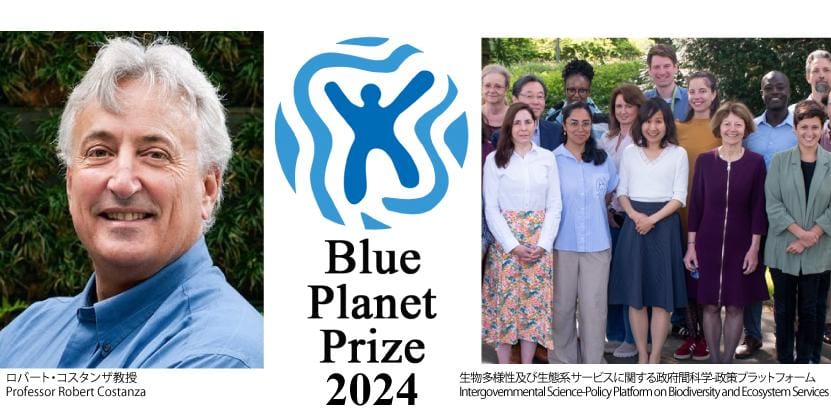Recently, Japan’s Asahi Glass Foundation announced the Blue Planet Prize 2024 for the Intergovernmental Platform on Biodiversity and Ecosystem Services (IPBES) and Professor Robert Costanza from the Institute for Global Prosperity, University College London, for their outstanding contributions to environmental research.
The Foundation recognised IPBES as the leading global body in terms of knowledge about biodiversity and ecosystem services. It also noted that the assessment reports of IPBES enabled the formation of science-supported policies and actions. Its reports have encouraged companies functioning across sectors to evaluate and reduce their negative impacts on the environment while improving their ESG framework.
The Foundation also recognised the contributions of Professor Costanza towards ecological economics. The contributions of these two winners helped solve some environmental challenges and facilitated global actions towards the same. The prize will be given on October 23 this year in a ceremony in Tokyo, Japan.
What is the Blue Planet Prize?
- Asahi Glass Foundation established the prize in 1992, the year when the Rio Earth Summit was held. It is recognised among the top sustainability awards globally.
- The Foundation gives this award every year to organisations and individuals for their contributions to the environment, ecology, and biodiversity through scientific research and their implementation. They consider how these efforts helped in resolving environmental issues.
- The award aims to encourage actions and efforts towards environmental preservation and betterment of the planet Earth.
- Two applicants are selected every year for the prize. Each gets a certificate, trophy, and a cash reward of $ 500,000.
- Prominent scientists and environmentalists have previously won this award.
About IPBES
- It is an independent inter-governmental body, established in 2012 by 94 governments, including India.
- Currently, it has 145 members and is headquartered in Bonn, Germany.
- Its primary goal is to strengthen the interaction between science and policy for the betterment of biodiversity, ecological services, sustainable development, and human well-being.
- Scientists from across the globe contribute to IPBES efforts and works.
- Though it is not related to the UN, the United Nations Environment Programme (UNEP) offers secretariat services to IPBES.











